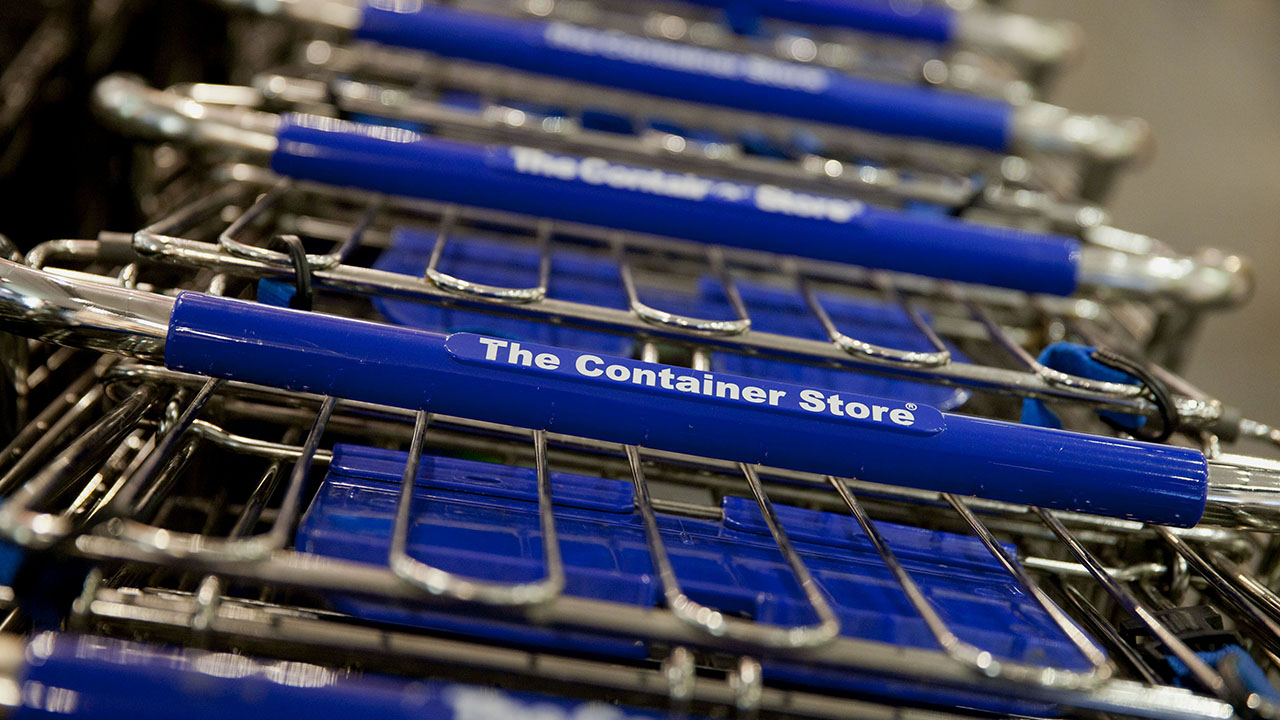
Shares of The Container Store were halted on the New York Stock Exchange as it prepares to delist the stock, marking the latest blow to the struggling retailer.
The decision was made on Monday because it had fallen below the NYSE’s continued listing standard. This standard requires listed companies to maintain an average global market capitalization of at least $15 million over 30 consecutive trading days.
The company still has the right to appeal the decision. The company won’t be delisted until all procedures, including any appeal of the NYSE Regulation staff’s decision, are completed. But it comes amid reports that the company is on the brink of filing for bankruptcy.
WHY THE CONTAINER STORE COULD BE NEXT RETAILER TO GO BANKRUPT
The nationwide retailer, which offers a range of custom spaces, organizational solutions and in-home services and at one point gained fame through the success of Netflix’s “Tidying Up” series, is now contending with a weaker housing market and a growing availability of cheaper alternatives.
Sam Stovall, chief investment strategist at CFRA Research, told FOX Business that being dropped by the NYSE “can adversely affect the company’s exposure and status.”
“Like a Major League Baseball player who gets demoted by the New York Yankees to one of its minor league teams, fewer fans will want to purchase his trading card, and his contract would likely be renegotiated lower,” Stovall said.
The company had already taken a hit when Beyond pulled its $40 million deal with The Container Store Group. Beyond, which reemerged from bankruptcy last year after facing its own financial woes, planned to invest in The Container Store Group and utilize a section within the store’s real estate locations to showcase its assortment of kitchen, bath and bedroom items, which would be co-branded.
BED BATH & BEYOND BRAND IS COMING BACK TO PHYSICAL STORES
However, Beyond Inc. Executive Chairman Marcus Lemonis said last month that the company had concerns that The Container Store might not be able to reach an agreement with its lenders on terms that would meet the financial needs of the deal.
“When we signed the Purchase Agreement, we were optimistic that the Container Store would be able to secure adequate financing to support the business going forward,” Lemonis said. “While we continue to believe in The Container Store’s brand and business fundamentals, the proposed financing terms we have reviewed to date fall short of what we believe is necessary to complete the transaction.”
GET FOX BUSINESS ON THE GO BY CLICKING HERE
Patrick Collins, bankruptcy and restructuring attorney at New York-based law firm Farrell Fritz said The Container Store’s ability to avoid bankruptcy really depends, “at least in the short term, on whether it can obtain relief from its lenders.”
“The timing of a potential bankruptcy will be dictated by the company’s liquidity and progress on preparations towards implementing the strategy it would hope carry out in a Chapter 11 bankruptcy case,” Collins said. “In the meantime, publicized predictions of a bankruptcy filing by The Container Store may further increase the financial pressure on the company as the prospect of a bankruptcy may cause trade vendors to tighten or eliminate the credit terms they offer to the company.”



